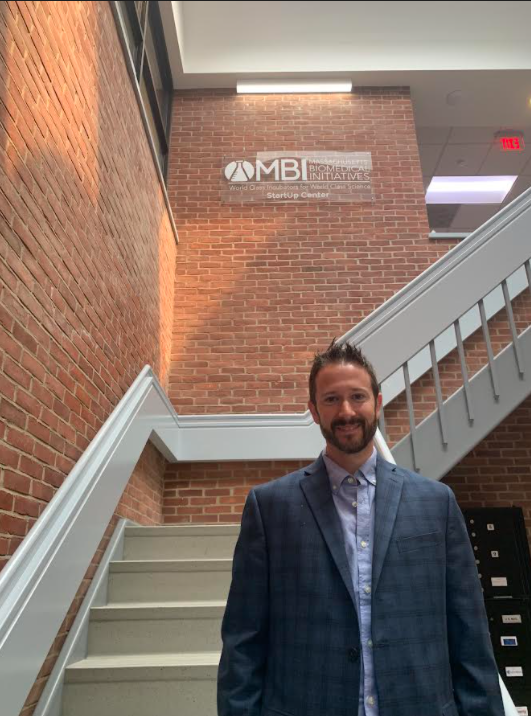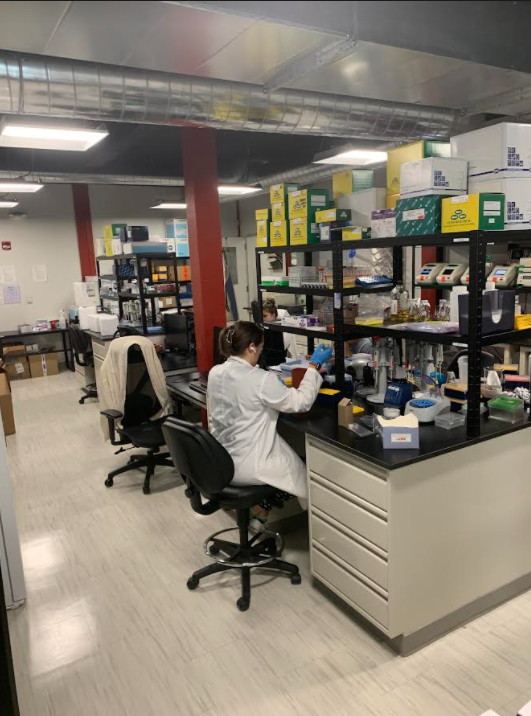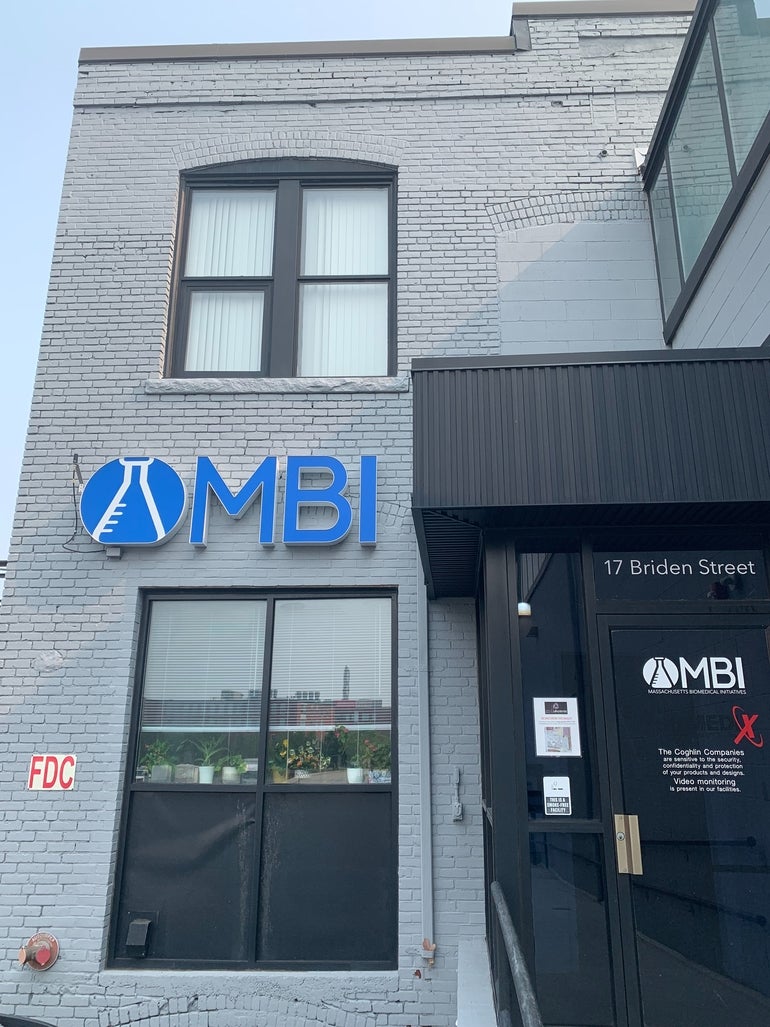Massachusetts Biomedical Initiatives was founded in 1985 by the Worcester Regional Chamber of Commerce. At the time, MBI was intended to look at how the city might leverage the resources placed in the city by the presence of UMass Medical School. In the years since, MBI, which is currently supporting 58 early-stage companies, has supported or been part of numerous area projects, including the creation of the state’s first biotech park — UMass Medicine Science Park, Gateway Park, Redstone Center and, currently, The Reactory. Last August, MBI moved into a new location on Briden Street, a 25,000-square-foot facility doubling the nonprofit’s space. Dedicated to promoting the region’s life science industry, incubating early stage companies and fostering workplace development, MBI President and CEO Jon Weaver spoke with WBJ about the company’s history, its current growth, and new programming.

When did your facility on Briden Street open? What other facilities do you operate?
We had our grand opening for this building in August of last year. So, this is a big deal for us. We operate four locations around the city. One is in Gateway Park. The location at 60 Prescott is in a Worcester Polytechnic Institute building where we access all their equipment. That is a pure, what we call a startup center. So, it’s kind of like a nursery school and elementary school for startups. If you want to start a company, that is where you come to get going.
Our Barber Avenue site is similar, but with more of a chemistry focus. Then, we’re also the landlord for LakePharma at 50 Prescott St., which was really kind of the inception of this, what we’re calling our scale up center concept, which is really like a high school for startups.
So, we found a lot of startups who, when they went to leave our first two sites, weren’t quite ready for the private market. They needed a little extra support. So, that scale up center model helped forge the path for this interim space they need to succeed. So, when we built this building [on Briden Street], we built some startup center space upstairs, and then we built the scale up center space downstairs to help bridge those companies to the private sector and help them get through their major investment rounds.
Briden Street doubled our total capacity.
How’s that going?
When we took it on, we thought it would take us three years to fill it. We’re about 95% full after 10 months.
Is LakePharma going to stay put following its acquisition by Curia later this year?
We think so. We’re going to be talking with them soon. Its Worcester team is a really important part of what it does and it has got some really good people that are working on that team. We’re hoping to see them hopefully expand in the city. Part of the incubator business is you love all your companies when they come in, but you also love it when they leave. So, as long as they’re expanding and growing in the city, we’re just happy to see that story continue.
Do you envision that space where LakePharma is to be a space where you continue to host companies?
We don’t know yet. We have to look at it, but our main goal for us is really just to see companies succeed and continue to grow. Because the jobs created from that, the tax base, all those things are the core of our mission.

What do companies have to do to be awarded space at MBI?
Our process is basically we ask companies that are interested in locating here to send a pitch deck. Our vice president, Zu Shen, who’s a PhD, reviews it to make sure the science makes sense. Then we send it off to our entrepreneur in residence, who was a venture capitalist for 15 years and can vet it to make sure that it has market sense. If there’s a potential market that they’re going after, if this is something that companies might invest in and they’ll have a future pathway, because that’s essential to all biotech businesses, the final piece is really to vet them for the team. Our philosophy on building companies is really based around teams.
Do you turn people away?
Yes, we actually turn quite a few people away. But part of it is, we want to make sure as a nonprofit, we’re not really helping a company if we take them in before they’re ready. And we’re not really accomplishing our mission, either. And if they don’t really have that full opportunity to succeed, right, if they’re not quite ready, we’re going to give them feedback, allow them to go back and work on some of those things, and then allow them to come back and apply again.
Is there collaboration here happening between companies?
There’s a ton of collaboration. In fact, last Friday, somebody had a birthday, and everyone in the place was singing. It’s a really cool and fun community within MBI.
But from the business support piece, we offer a monthly lunch-and-learn session, and we’ll have an educational program on topics entrepreneurs should know. We partner with the Venture Forum here in Worcester a lot to help them support its programming, which is in the same vein.
Internally, we offer the entrepreneur-in-residence program where our companies can work with an experienced entrepreneur to learn, to go tactically through their deck, through strategy, and get expert advice.
We just created a new program called BOLT, which stands for Bold On Leadership Teams. So, MBI will work with the first-time entrepreneur [and a company] and say, we’ve identified these two or three things we need to work on in order for [a company] to raise money in 12 to 24 months. If the company is on board with that, we’ll build the team around it in exchange for an equity stake. We’ll help the company raise capital. We’ve just launched our first two teams, and we’re hoping to have some good news on those two, hopefully within the next 12 months.
What is your relationship like with WPI?
There’s very few things we don’t in some way partner with WPI on, and a bunch of the area colleges. Our partnership with WPI has been fantastic. We leased space from them; our 60 Prescott St. location is in their building. Almost all of our companies utilize some of the core equipment they offer to the community, million-dollar pieces of equipment our companies could never dream of owning. So, that’s a huge partnership. Then we work with WPI on workforce initiatives. We have partnerships with a bunch of faculty members, and if you walk around here, you’ll notice a bunch of WPI interns working at a bunch of our companies.
Is there anything you’d like to add?
Worcester is in a unique time right now. We’re almost out of existing lab space. The biotech community is booming in the city. So, MBI is really focused on getting some new lab supply built, and that’s in a couple different areas. We’re in the area around Polar Park; there’s the opportunity for multiple biotech buildings to be constructed over there, kind of like a Worcester Seaport District where we can build an entirely new neighborhood around the ballpark with some real energy. Worcester desperately needs the R&D space.
Then, there’s a project MBI kind of helped seed, which is 46-acre biomanufacturing campus The Reactory, which started as an MBI white paper and was a great testament of Worcester’s collaborative spirit.
This interview was conducted and edited for length and clarity by WBJ Senior Staff Writer Monica Benevides.

